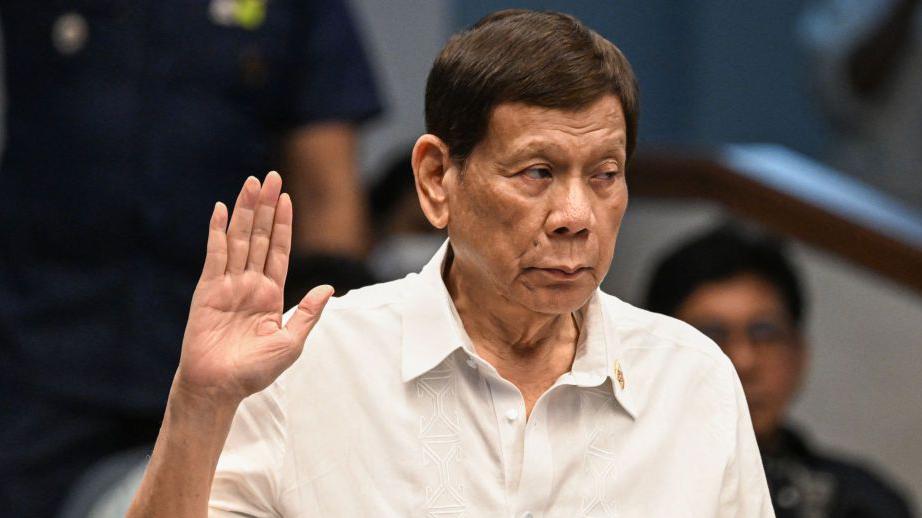Former Philippine President Rodrigo Duterte recently appeared before a Senate investigation into his infamous “war on drugs,” during which he revealed the existence of a death squad that operated under his orders while he was mayor of Davao City. In his testimony, Duterte characterized the squad as composed of “gangsters” and wealthy individuals who found pleasure in carrying out killings.
He admitted to bypassing the police force to avoid the scrutiny that would come with official investigations, asserting that he accepted “full, moral and legal responsibility” for the violent measures he implemented during both his time as mayor and later as president from 2016 to 2022.
During the Senate hearing, Duterte openly acknowledged that thousands were killed during his tenure as mayor, claiming that these individuals were criminals and thus justifying their deaths. He specifically noted that the death squad did not include police officers to sidestep any potential disciplinary action that might arise from their involvement in the killings.
By claiming that he exercised absolute power over the operations of the squad, Duterte painted a picture of a ruthless governance style in which he directly ordered the killings of certain individuals, often with a blunt disregard for legal protocols.
Duterte’s testimony highlighted a defiant stance toward the extrajudicial killings he authorized, framing them as a necessary response to the drug epidemic that plagued the country. He expressed no remorse, insisting that his policies should not be questioned and that he owed no apologies or excuses for his actions.

He went so far as to assert that he would repeat these tactics if given the opportunity, reinforcing his belief in the harsh measures as essential for the welfare of the nation and its fight against drugs.
The far-reaching consequences of Duterte’s drug war have drawn both national and international scrutiny, with estimates of deaths ranging from 6,252 to as high as 30,000. This has triggered outrage among human rights organizations and led to an investigation by the International Criminal Court, which began in 2023.
Duterte’s testimony also included alarming details about how he instructed police officers to provoke suspects into resisting arrest, providing a justification for the violent actions taken against them. This admission has raised serious ethical questions regarding law enforcement practices under his administration.
Compounding the drama of the hearing was the presence of former Senator Leila de Lima, a prominent critic of Duterte who has spent nearly seven years in prison on drug-related charges widely seen as politically motivated.
Despite claims of progress in human rights, reports from the United Nations Office of the High Commissioner for Human Rights (OHCHR) reveal persistent issues of impunity and police abuses associated with Duterte’s drug war.
The OHCHR has called for accountability regarding these human rights violations, warning that while some improvements have been made, the culture of impunity remains a critical challenge as extrajudicial killings and unresolved cases continue to haunt the nation.

